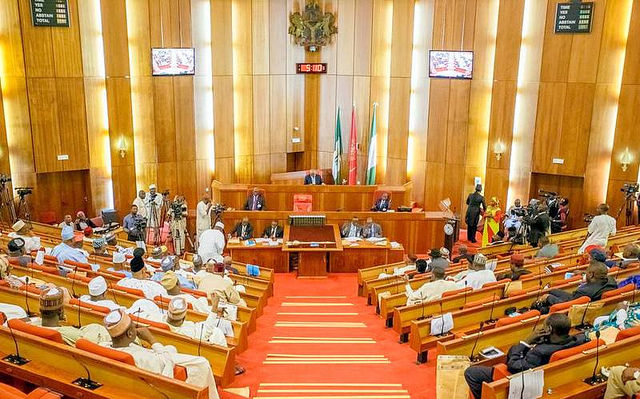Nigerian Senate Passes Insurance Consolidated Bill, Raising Capital Requirements
In a significant move to revamp the insurance sector, the Nigerian Senate has passed the Insurance Consolidated Bill, which will increase the minimum capital requirements for insurance companies operating within the country. The bill, sponsored by Senator Adetokunbo Abiru, the Chairman of the Senate Committee on Banking, Insurance, and Other Financial Institutions, was passed following an exhaustive clause-by-clause review at the Committee of the Whole, led by Deputy Senate President Barau Jibrin.
Under the new legislation, non-life insurance companies must now maintain a minimum capital of N15 billion, up from N3 billion. Life insurance companies are required to hold N10 billion, an increase from N2 billion, while reinsurance companies must possess N35 billion, previously N10 billion. These changes aim to address the depreciation of the Nigerian currency and align with the Finance Act 2022, enhancing international competitiveness and supporting the African Continental Free Trade Area (AfCFTA) objectives.
Senator Abiru highlighted during the session that the existing insurance laws, some over three decades old, no longer meet the contemporary needs of the industry. “These legal obsolescences have led to regulatory inefficiencies, hampering the industry’s global competitiveness,” he stated, emphasizing the bill’s aim to foster growth and innovation in the sector.
However, not all senators were in favor. Senator Jimoh Ibrahim from Ondo South voiced concerns that the steep capital increase could lead to the “extinction” of insurance companies in Nigeria. He advocated for maintaining the current capital at N2 billion, citing the financial strain on companies, especially with 20% of their capital locked at the Central Bank of Nigeria (CBN). His amendment found no support when put to a vote.
The National Insurance Commission (NAICOM) has expressed enthusiasm for the bill, viewing it as a pivotal moment for the insurance industry’s development. “This legislation will unlock the growth, prosperity, and potential of the insurance sector,” stated a representative from NAICOM, underlining the bill’s potential to increase the sector’s contribution to Nigeria’s GDP.
The bill now moves to the House of Representatives for concurrence. If passed, it will head to President Bola Tinubu for assent, marking a new era for the regulation of insurance in Nigeria. The legislation aims to:
-
Enhance Capital Requirements: Ensuring insurance companies are well-capitalized to handle risks and protect policyholders.
-
Implement Risk-Based Supervision: Allowing for more effective risk management and oversight by regulators.
-
Strengthen Consumer Protection: With new regulations ensuring transparency and fairness in insurance practices.
-
Streamline Regulatory Framework: Providing a clear, consistent regulatory environment to boost efficiency.
This legislative action is seen as a crucial step towards addressing the low insurance penetration in Nigeria, aiming to make the sector more robust and competitive both within Africa and on the global stage.














Post Comment